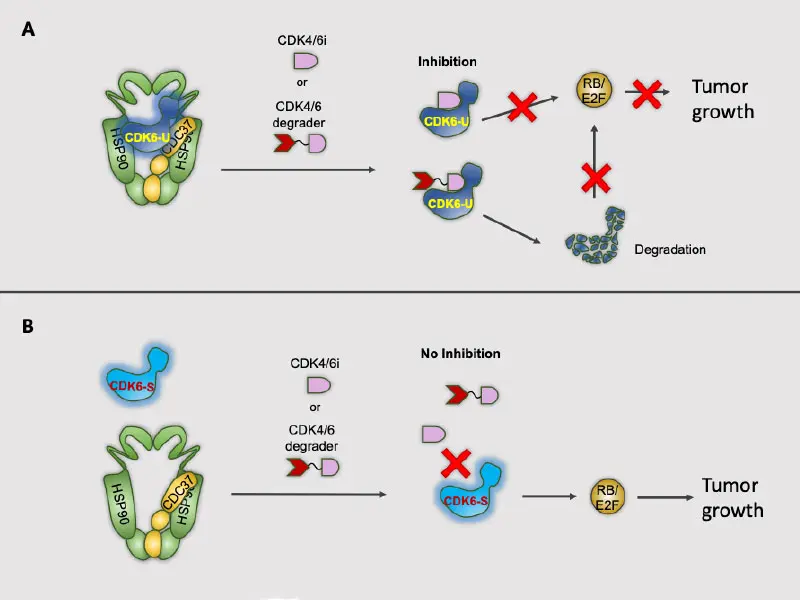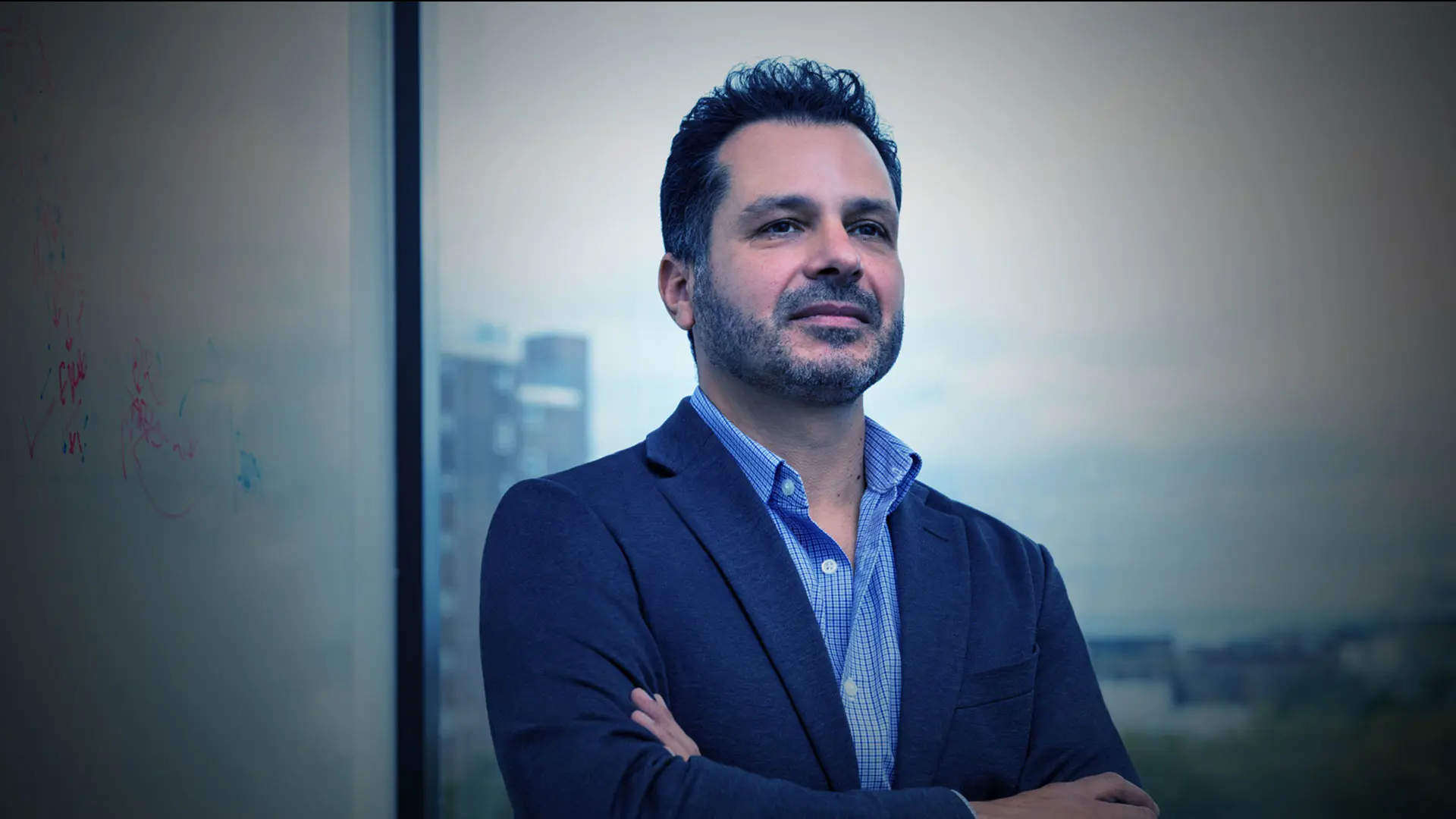
A. When CDK6 is unstable (CDK6-U), there is high-binding affinity for inhibitors and degraders, which suppress signaling and block tumor growth. B. When CDK6 is stable (CDK6-S), there is low-binding affinity, and tumors are resistant to these drugs. New inhibitors are warranted for application as cancer therapeutics.
Small-molecule inhibitors of the closely related cyclin-dependent kinases 4 and 6 (CDK4/6 is) that have shown success in treating patients with metastatic breast cancer have been only modestly effective against other tumor types. A research team from the Icahn School of Medicine at Mount Sinai recently found a biological rationale for that disparity, which could bode well for the development of targeted therapies across a wide range of cancers. The results were described in Nature Cancer in March 2021.
The researchers observed that CDK4/6 inhibitors were ineffective in blocking cell-cycle progression in many tumor types beyond metastatic breast cancer, due to their inability to effectively promote dephosphorylation and activation of the tumor retinoblastoma (RB) protein.
They further discovered that the effectiveness of that inhibition in treating metastatic ER+ breast cancers versus other tumor cell types can be traced to the expression of CDK6. While CDK4 is expressed across most cancer types, expression of CDK6 is variable. Importantly, tumors with low CDK6 expression relative to CDK4 are more sensitive to CDK4/6 inhibitors. These tumor types include luminal breast cancer, Ewing sarcomas, and mantle cell lymphomas, but also subsets of lung, melanoma, and colorectal tumors.
The expression ratio of CDK4 to CDK6 can be used to stratify patients.
The research team confirmed the association of low CDK6
expression with increased clinical response to CDK4/6 inhibitors by analyzing clinical data in patients with non-small cell lung cancer. They found that low CDK6 expression can serve as a biomarker for selecting patients with various tumor types who are more likely
to benefit from CDK4/6 inhibitors.
“Our study found that the difference in sensitivity relates to the difference in binding of the inhibitor to its target CDK6 in the tumor cells, and that the level of binding, in turn, depends
on two separate conformations of CDK6,” says the study’s senior author, Poulikos Poulikakos, PhD, Associate Professor, Oncological
Sciences, Icahn Mount Sinai. “In a smaller portion of tumors that express CDK6, CDK6 is expressed in a highly thermo-unstable form, which current inhibitors and degraders potently bind to. However, in most solid tumors CDK6 is thermostable, exhibits weaker binding to CDK4/6 inhibitors, and currently available CDK4/6 inhibitors are ineffective in antagonizing it.”
The Mount Sinai research team uncovered an important mechanism of intrinsic resistance to CDK4/6 inhibitors and CDK4/6-derived degraders, which underscores the need for new inhibitors targeting the thermostable form of CDK6 as cancer therapeutics.
Our research underscores the pressing need for new drugs and new pharmacologic approaches that can address different conformations—thermo-unstable and thermostable—of the same CDK6 target.
- Poulikos Poulikakos, PhD
“Collectively, our data showed that the expression ratio of CDK4 to CDK6 can be used to stratify patients who are most likely to benefit from CDK4/6-based therapies,” says Dr. Poulikakos, whose laboratory investigates growth factor signaling regulation in normal and tumor cells. The results of the study further indicate that in various forms of resistance, targeting of parallel or convergent growth factor signaling pathways—such as P13K, AKT, MEK or ERK in combination with selection of patients with low CDK6 relative to CDK4 expression—is likely to elicit the most effective and durable tumor response.
“We are entering a new and more complex era in the fight
against cancer where it isn’t sufficient to just have a CDK4/6 inhibitor,” says Dr. Poulikakos. “Although CDK4/6 kinases remain a highly validated target for cancer therapy, our research underscores the pressing need for new drugs and new pharmacologic approaches that can address different conformations—thermo-unstable and thermostable—of the same CDK6 target.”

Poulikos Poulikakos, PhD, Associate Professor of Oncological Sciences
